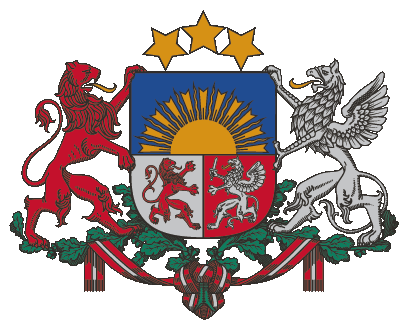Latvia's mandatory procurement support system has been receiving sharp criticism from the mass media and the public for several years. While acknowledging Latvia's achievements in increasing the share of "green" energy, the European Commission also points to the cost and inefficiency of Latvia's "green" electricity support policy, even from the point of view of the development of the sector. When analysing the reasons for the increase in price and inefficiency during the audit "Is a purposeful renewable energy policy implemented in Latvia?", the State Audit Office discovered cases of unduly granted support, regularly unearned potential revenues of millions from cogeneration heat "blown up in the air", and inability to prevent the purchase of expensive and inefficient technologies. Those have unfortunately proved to be systemic problems.
One billion euros for losing the reputation of the sector
Between 2011 and 2019, the mandatory procurement system, under which one also supported renewable electricity producers, cost the Latvian population and the economy one billion euros. At the same time, public suspicions are voiced about fraud in the production of renewable electricity and cogeneration plants. There are criminal proceedings initiated for violations in receiving mandatory procurement support. All this has significantly undermined public confidence in the established support system for renewable energy sources and the European Green Deal.
Although the Ministry of Economics, as the institution responsible for this area, has identified the shortcomings of the support mechanism since 2012, it has not acted to change anything radically. The State Audit Office is harsh in its assessment of the renewable energy policy implemented by the Ministry of Economics; however, one expects that further actions of the Ministry will allow regaining public confidence in the renewable energy policy. To this end and to save the reputation of the sector, the State Audit Office recommends the Ministry be decisive in recovering unduly paid state aid, make informed decisions on the development of the sector, and demonstrate the public benefits of using green energy.
Why has green energy cost Latvia so much?
It follows from the European Commission's conclusions that the current Latvian renewable energy support scheme has proved to be expensive. The State Audit Office has revealed several reasons for the increase in prices.
The supervision of economic operators by the Ministry of Economics was weak. Thus, some producers have been overpaid. For example, one discovered deficiencies in the accounting of electricity consumption in the reports of seven companies on their activities in 2018 and 2019 out of the eight companies included in the audit sample. This indicates the risk of receiving more mandatory procurement support than required by law. In addition, in the opinion of the auditors, sufficient evidence has been obtained for two companies that received support unjustifiably in 2018 and 2019 of almost 500,000 euros. In this case, the State Audit Office will turn to law enforcement bodies after the audit.
The Ministry of Economics has not controlled the use of useful heat in the cogeneration plants sufficiently. The calculation of the price of electricity purchased in the mandatory procurement does not consider the unearned revenues of cogeneration plants from the produced heat energy, which is actually "blown up in the air". According to the estimates of the State Audit Office and experts involved in the audit, that meant at least 8.5 million euros per year. The state-guaranteed payment for the electricity sold above the market price, which was at least twice the amount of support for similar cogeneration plants in Estonia, allowed the uneconomic operation of such cogeneration plants.
The Ministry of Economy has not complied with the principle of technology neutrality in its renewable energy development policy, although it has acknowledged repeatedly that the current approach provides support for expensive and inefficient technologies, which has hindered the development of more competitive technologies for renewable electricity production and not decreased the burden of mandatory procurement component on the electricity consumers.
Simultaneously, one must remind that the mandatory procurement component forms a relatively small part of the electricity bill. Contrary to the frequent misconception that the cost of the mandatory procurement component is the price of "green" electricity, the State Audit Office emphasises that renewable energy power plants receive only 64% of the support paid by electricity consumers this component. Thus, on the household bill, support for renewable electricity producers accounts for an average of 8-12% of the total bill. Namely, if a household's monthly electricity bill is 28.64 euros, then the household has paid 2.38 euros for the support for the production of "green" electricity in 2020.
Streamlining the industry will require much effort
The State Audit Office recommends to the Ministry of Economics to observe the principle of technology neutrality in the terms and conditions of support for renewable energy production further on, without linking the granting of support to a specific electricity production technology as far as possible. In addition, the planning of renewable energy policy should consider the interests of the national economy and the public. The Ministry of Economics should also assess the shortcomings of the support activity for energy-intensive manufacturing sectors detected during the audit to provide targeted support to exporting companies.
The State Audit Office appreciates that the State Construction Control Office has started active operations for supervising the beneficiaries of mandatory procurement support in the first eight months of 2020. There is a control group set up, and there are on-site inspections of power plants carried out. This indicates a significant improvement in the monitoring of beneficiaries, but much effort is still ahead, especially concerning assessing the justification of support previously received by companies and the recovery of unduly paid state aid.
